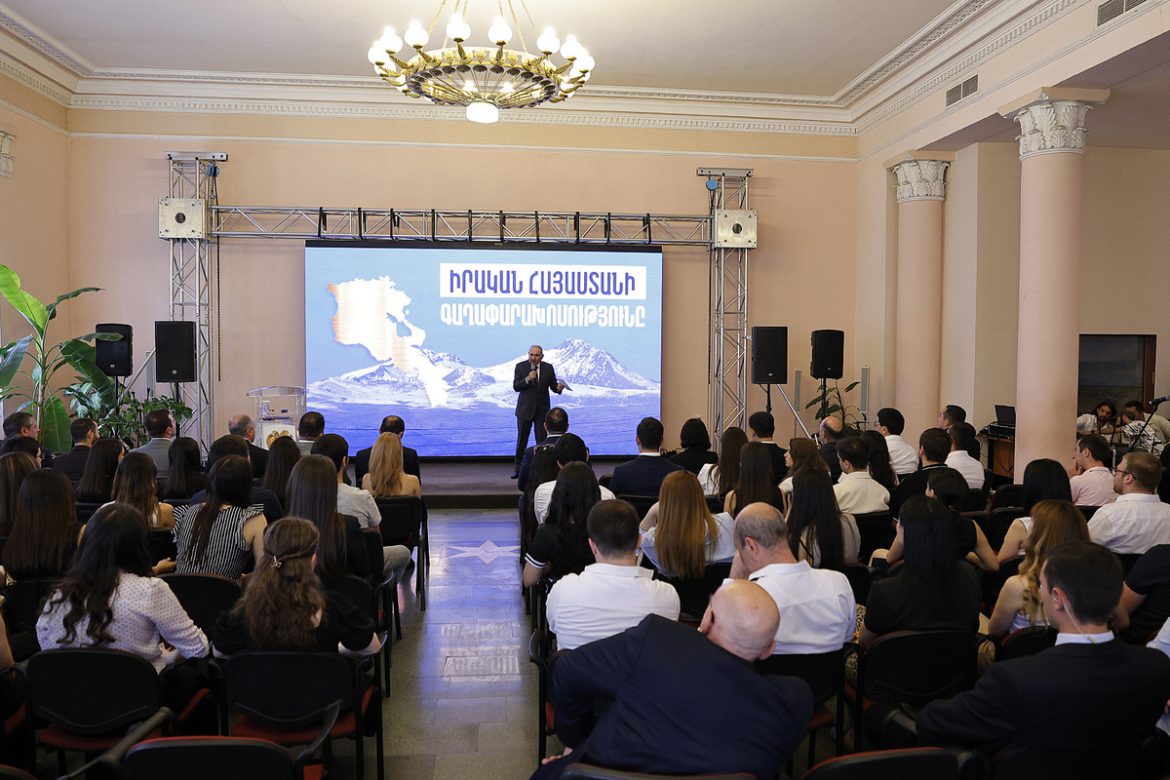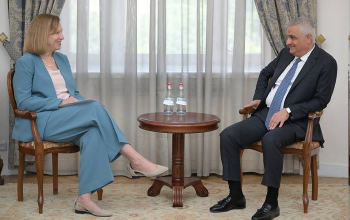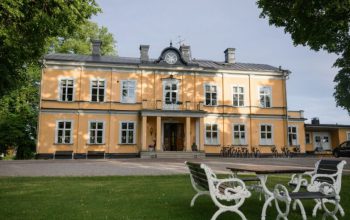By Andranik Aboyan
During a closed-door meeting at Yerevan State University, Prime Minister Nikol Pashinyan reportedly told students that the fall of Artsakh — the Armenian-populated territory surrendered to Azerbaijani control in the aftermath of the 2020 war — was not merely a loss, but a gain. According to student accounts, Pashinyan asserted that “when we lost Artsakh, we finally gained independence for the Republic of Armenia.” He affirmed, further, that even in hindsight, he would not have reversed the 2018 “velvet revolution,” even knowing it would culminate in the loss of Artsakh. These remarks, shocking in their candor and cynicism, were not aberrations. They reflect a deeper logic: one that equates destruction with emancipation, erasure with sovereignty.
To declare the loss of Artsakh a form of national independence is not merely to falsify history, but to invert the very category of memory. In such statements, ideology reaches its most advanced form: the reconciliation of catastrophe with progress. The Prime Minister’s utterance — reported not from a stage, but from the bureaucratized intimacy of a closed university room — bears the character of what German idealism once called Versöhnung: reconciliation, but here perverted. Not the reconciliation of man and truth, but of man and ruin, under the veil of necessity.
What is concealed in the formula “we gained independence when we lost Artsakh” is not only the erasure of the dead but the rationalization of their erasure. In place of mourning, justification; in place of guilt, measurement. The dialectic of enlightenment, long since unmoored from liberation, arrives now at its absurd fulfillment: a freedom that consists in the liquidation of all content — land, people, history — that once demanded freedom in the first place.
This is not merely revisionism. It is the self-cancellation of thought. The claim that sovereignty increases in inverse proportion to territory — and more, to life — is intelligible only within the administrative logic that subordinates all experience to the abstractions of the state. One must ask: for whom is the Republic more independent? And of what is it now free? If the answer is “free of obligation to a people who suffered for three decades in defense of being,” then such independence is indistinguishable from nihilism.
The truth is unspeakable within such a system, because truth requires remembrance, and remembrance requires contradiction. But contradiction is the very thing the Prime Minister flees. His whole regime, despite the rhetoric of rupture, is in fact an instrument for the suppression of contradiction. The war is always someone else’s fault; the past is always corrupt; loss is always productive. In this schema, thought becomes tautology: we are independent because we are told we are.
Pashinyan’s statement cannot be understood merely as a political error or a provocation. It is the ideological residue of a world in which sacrifice has been divorced from meaning. That 3,800 soldiers were killed, that a century of defiance was extinguished in six weeks — these facts do not enter the official consciousness. They are repressed, and in their place stands the fetish: the new Armenia, a nation without extension, without memory, and ultimately without subject.
Such is the logic of late sovereignty. In its desperation to preserve itself, it empties itself of content. The homeland becomes a managerial unit. The citizen, a statistic. The fallen, a regrettable cost on the path to integration into a world where being small is no longer a curse but a requirement. The task of mourning is replaced with the task of aligning.
But mourning, in its truest form, is resistance. It is the refusal to let suffering be reconciled with its cause. It is the persistence of the negative — that which will not be pacified by speeches or by charts.
In the end, it is not that Pashinyan said what he did behind closed doors. It is that he could say it at all, and that the machinery around him, educational and political alike, did not collapse under the weight of such a sentence. That is the real measure of the disaster.
For what kind of state gains independence by losing its soul?




